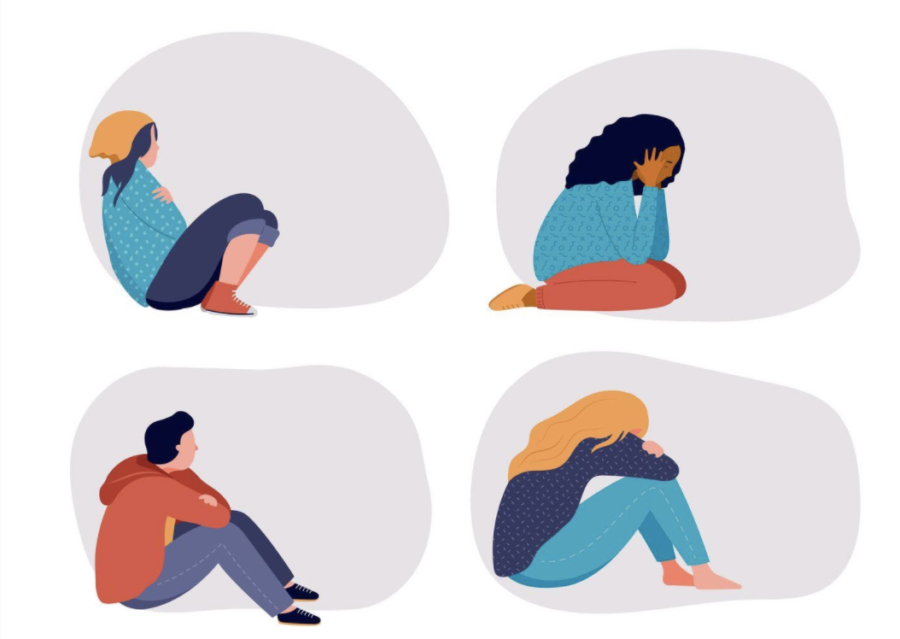Opinion: A Struggle That Doesn’t Have to Be
Mental Health in Adolescents
Mental health days are becoming more and more relevant and necessary for students.
Fatigue and burnout are plaguing American teenagers.
While awareness of this adolescent epidemic has increased in recent years, solutions to this overwhelming issue haven’t proven effective. This is due to the busy schedules of teenagers; how can we relieve their stress when they must juggle school, sports, extracurricular activities, work, community service, and everything else?
The recently popularized concept of the mental health day provides an answer to this question. Already common practice in American workplaces, a mental health day allows one to take a day off of work to, without penalty or punishment, prioritize their mental health.
Teenagers, however, are seldom afforded this luxury, even if they need it as much as their adult counterparts.
“I have needed a mental health day,” Wilton High School sophomore Savannah Joseph said. “Typically, when I feel overwhelmed in school over a long period of time, a mental health day seems like a really helpful concept.”
Others also feel the same, noting how mental health days relieve built-up stress.
“A mental health day can help to relieve stress,” student Stephanie Tang added.
While some states now allow absences from school for mental health reasons, stigma still remains around the concept of mental health days.
“Sick days are sick days, whether it’s physical or mental,” Dr. Harold S. Koplewicz, medical director of the Child Mind Institute and a child and adolescent psychiatrist based in New York City, said in a New York Times article by Christina Caron.
Many teachers fear that students will abuse the privilege of mental health days, but student screening can counteract this. If a student cites their reason for absence as mental health, school officials can meet with the student to specify. This can also allow schools to determine if action is needed to improve the mental health of the student.
Others worry about the effectiveness of mental health days.
“It is unlikely that a day off will fully resolve the buildup of these symptoms [of mental illness] – exhaustion, inability to focus, feeling depressed, changes in sleep patterns,” an article from Forbes Magazine by Bernie Wong said.
However, mental health days aren’t a complete solution for mental illness. Their purpose is to provide a break from daily life to allow one to relax and recharge.
“I do think mental health days would be beneficial to the student population,” student Ashleigh Masterson said.
Mental health days also shed light on more significant mental health issues. Feeling burnt out, depressed, sad, and tired even after taking a mental health day can lead one to seek appropriate medical attention for mental health.
Because the mental health needs of students vary at different times, students advocate for the ability to take mental health days at times of their choosing.
“Students should be allowed to choose their own mental health days because everyone’s schedule is different, and maybe there are things going on at home that require a student to take a day off,” student Anagha Khisti said.
While teachers cite disruptions to the curriculum as a reason why students shouldn’t be allowed to decide when to take a mental health day, mental health days would benefit students most when they need one.
Students also agree that mental health days should be used in moderation. Many recognized one mental health day per month as appropriate, which wouldn’t significantly disrupt a teacher’s curriculum any more than each student taking one sick day per month. Students taking mental health days on their own accord may even prevent sick days.
Students also claim that taking more than one mental health day per month signals the need for mental health evaluation: another example of how mental health days can raise awareness of the mental health needs of students.
Some argue against the implementation of mental health days on the basis that people already take them but disguise them with another reason.
“95% of employees who have taken time off due to stress named another reason, such as an upset stomach or headache,” Wong said.
Students shouldn’t feel the need to hide their mental health concerns. If we recognize, destigmatize, and even encourage mental health days, students can be vocal and honest about mental health.
When we accept and discuss the mental health needs of students, we open up a larger conversation about mental health, leading to a world where mental health is taken seriously and prioritized just like physical health.
Grace DiBuono-Krafick is a junior at Wilton High School. As a Staff Writer for The Forum, her favorite topics to write about are current events, local news, and sports. Besides being an avid writer, she plays softball and volleyball. She also participates in many other clubs at Wilton High School, including Amnesty International and Key Club. Outside of school, she loves spending time outdoors and with friends and family.

